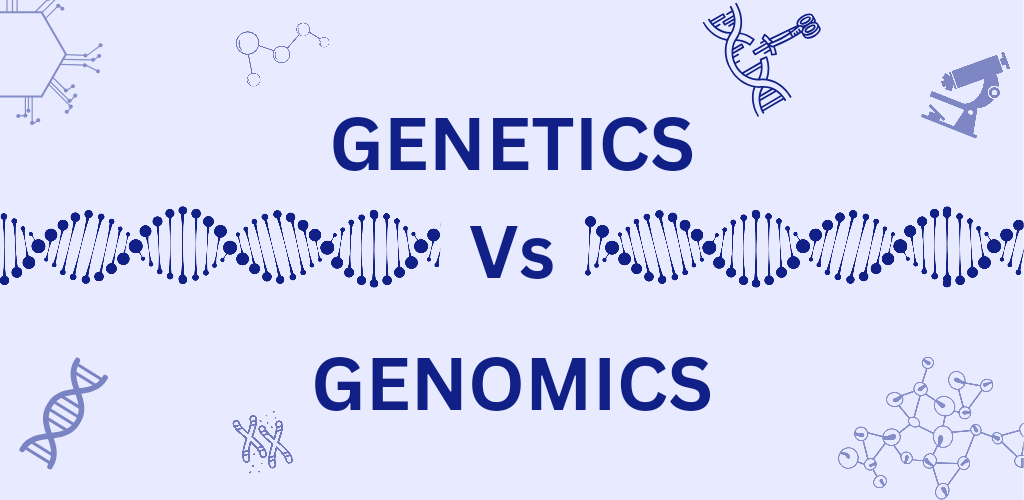How Genomic Testing is Revolutionizing Heart Health
Genomic testing is transforming the landscape of cardiovascular health by enabling personalized approaches to prevention, diagnosis, and treatment of heart diseases. This shift from traditional risk assessment methods to DNA-based evaluations allows for a more nuanced understanding of individual risk factors, ultimately leading to improved patient outcomes. The integration of cardiovascular genomics into clinical practice is paving the way for tailored interventions that consider genetic predispositions, thereby revolutionizing heart health management.
Genomics in Cardiovascular Health
- Personalized Risk Assessment: Genomic testing, including DNA tests for heart disease, provides insights into an individual’s genetic predisposition to cardiovascular conditions. Polygenic risk scores (a numerical value that estimates an individual’s genetic predisposition to certain diseases or traits based on the cumulative effects of multiple genetic variants) can identify those at elevated risk even before symptoms arise. [1]
- Comprehensive Genetic Testing: Advanced genetic cardiology tests assess a wide array of genes associated with heart disease, allowing for early detection and intervention strategies tailored to the patient’s genetic profile. [2]
- Integration of Epigenomics: Research indicates that epigenetic factors, such as DNA methylation, play a significant role in heart disease development. For example, Methylation changes linked to dilated cardiomyopathy (DCM) affect cardiac gene expression. Identifying these changes can lead to early indicators of cardiac risk and inform treatment options. [3]
Advancements in DNA-Based Heart Risk Assessment
- Coronary Artery Calcium (CAC) Scans: These scans, when combined with genomic data, enhance the ability to detect subclinical atherosclerosis, providing a more comprehensive risk assessment. Genomic data improves CAC scan interpretation by integrating genetic predispositions, allowing for better identification of individuals at heightened risk for coronary artery disease (CAD). This combination enhances risk stratification by contextualizing CAC findings with genetic markers, enabling tailored preventive strategies and treatment plans. Furthermore, genomic insights help refine clinical decision-making by identifying patients who may require more aggressive interventions despite similar CAC scores, ensuring personalized and precise cardiovascular care. [1]
- Emerging Technologies: Emerging Technologies: The development of semi-automated genomic tests reduces the interpretation burden for clinicians, facilitating broader adoption of genetic testing in routine cardiovascular care. Specific technologies, such as next-generation sequencing (NGS) and advanced bioinformatics tools, play a pivotal role in this advancement. NGS enables the rapid and cost-effective sequencing of large genomic regions, identifying clinically relevant variants associated with cardiovascular diseases. Bioinformatics tools streamline the analysis and interpretation of these vast datasets, ensuring accurate variant classification and actionable insights. Together, these technologies enhance diagnostic precision, improve risk stratification, and enable personalized treatment strategies in cardiovascular care. [2]
- Population-Level Initiatives: The scalability of genomic testing supports public health efforts to identify at-risk populations, enabling proactive management of cardiovascular diseases. [2]
Personalized Heart Health Testing
- Tailored Treatment Plans: Genetic insights allow healthcare providers to customize treatment plans based on individual genetic profiles, improving efficacy and reducing adverse effects. [4]
- Informed patient decision making: Patients equipped with knowledge about their genetic risks can make informed lifestyle choices and engage in preventive measures, fostering a proactive approach to heart health.
- Family Screening and Risk Stratification: Individuals with a family history of cardiovascular diseases can benefit from genetic counseling and screening to mitigate risk. Cascade screening enables the identification of affected family members, allowing for preventive interventions at an earlier stage. [5]
Challenges and Ethical Considerations
Despite the immense potential of genetic testing in cardiology, several challenges remain:
- Data Privacy and Ethical Concerns: Safeguarding genetic information is crucial to prevent misuse and discrimination. Misuse includes unauthorized access to genetic data by third parties, leading to potential exploitation or genetic profiling. Discrimination may arise in employment or insurance settings, where individuals with predispositions to certain diseases could face higher premiums, coverage denial, or job-related biases.
- Clinical Utility and Interpretation: Not all genetic variants have well-established clinical significance, necessitating further research and validation. A major challenge is the presence of variants of uncertain significance (VUS)—genetic alterations whose impact on disease risk remains unknown. The interpretation of VUS can be complex, leading to patient anxiety and potential mismanagement of clinical decisions. Continuous updates to genomic databases and improved AI-driven variant classification tools are needed to address these uncertainties.
- Cost and Accessibility: While costs are declining, widespread implementation still requires healthcare infrastructure improvements and insurance coverage expansion. The affordability of genetic testing remains a barrier, especially in low-resource settings, limiting equitable access to personalized medicine.
Conclusion
As genomic technologies continue to advance, personalized heart health testing is expected to become an integral part of routine cardiovascular care. Large-scale biobank projects, such as the UK Biobank, are fueling discoveries that will refine risk prediction models. Additionally, direct-to-consumer genetic testing services are making DNA-based risk assessments more accessible to the general population, though expert interpretation remains essential.
Genomic testing is revolutionizing heart health by offering unprecedented insights into cardiovascular disease predisposition, early diagnosis, and personalized treatment strategies. As research progresses, the integration of genetic testing into routine clinical practice will enable more effective prevention and management of heart conditions, however, addressing ethical, economic, and regulatory challenges will be crucial for maximizing the benefits of heart disease genetic tests in the coming years.
References
- Mekhael, M., Bidaoui, G., Falloon, A., & Pandey, A. C. (2024). Personalization of Primary Prevention: Exploring the Role of Coronary Artery Calcium and Polygenic Risk Score in Cardiovascular Diseases. Trends in Cardiovascular Medicine. https://doi.org/10.1016/j.tcm.2024.10.003
- Amendola, L. M., Coffey, A. J., Lowry, J., Avecilla, J., Malhotra, A., Chawla, A., Thacker, S., Taylor, J. P., Rajkumar, R., Brown, C. M., Golden-Grant, K., Hejja, R., Lee, J. A., Medrano, P., Milewski, B., Mullen, F., Walker, A., Huertez-Vasquez, A., Longoni, M., … Taft, R. J. (2024). Development of a comprehensive genome-wide cardiovascular disease genetic risk assessment test. medRxiv. https://doi.org/10.1101/2024.05.06.24306379
- Tan, K., Tay, D., Tan, W. L. W., Ng, H. K., Wong, E., Morley, M., Singhera, G. K., Jain, P., Tai, F. W. D., Hanson, P., Cappola, T. P., Margulies, K. B., Foo, R., & Loh, M. (2024). Epigenome-wide association study for dilated cardiomyopathy in left ventricular heart tissue identifies putative gene sets associated with cardiac development and early indicators of cardiac risk. https://doi.org/10.1101/2024.07.16.24310537
- Johnson, K. B., Wei, W. Q., Weeraratne, D., Frisse, M. E., Misulis, K., Rhee, K., Zhao, J., & Snowdon, J. L. (2021). Precision Medicine, AI, and the Future of Personalized Health Care. Clinical and translational science, 14(1), 86–93. https://doi.org/10.1111/cts.12884
- Sturm A. C. (2016). Cardiovascular Cascade Genetic Testing: Exploring the Role of Direct Contact and Technology. Frontiers in cardiovascular medicine, 3, 11. https://doi.org/10.3389/fcvm.2016.00011




